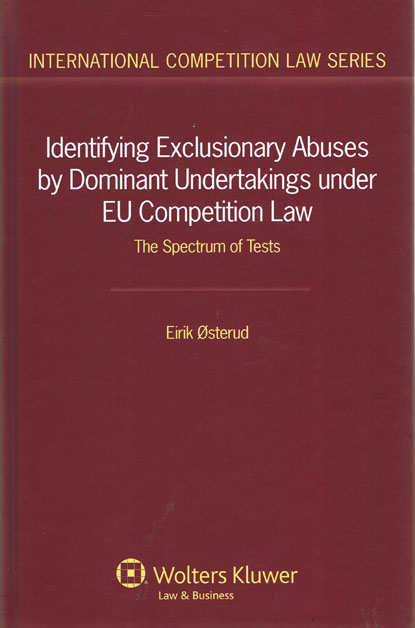
Under Article 102 TFEU, dominant firms are allowed to compete, but only to the extent their market behaviour does not constitute an abuse. Needless to say, the wording of the article neither explains what an abusive restriction of competition is nor how such a practice can be identified.
Rather than developing a one-size-fits-all test applicable to all forms of market behaviour by dominant firms, the European Court of Justice (ECJ) and the General Court (ex Court of First Instance) have set out a system of tests for separate categories of conduct.
Drawing on the full range of the EU Courts’ relevant case law, this very useful book analyses the conditions that must be fulfilled for a broad range of business practices to be deemed abusive within the meaning of Article 102 TFEU, and also identifies the criteria that must be fulfilled for a practice to be ‘objectively justified’.
The potentially abusive practices studied here (as defined in the relevant case law) include the following:-
In the course of its clarification of the EU Courts’ responses to individual forms of market behaviour, an overall approach to the identification of exclusionary abuses under Article 102 TFEU begins to come into view. Apart from the important new synthesis the work offers legal scholars, there can be little doubt this book will prove a valuable asset and even an inspiration to competition lawyers.